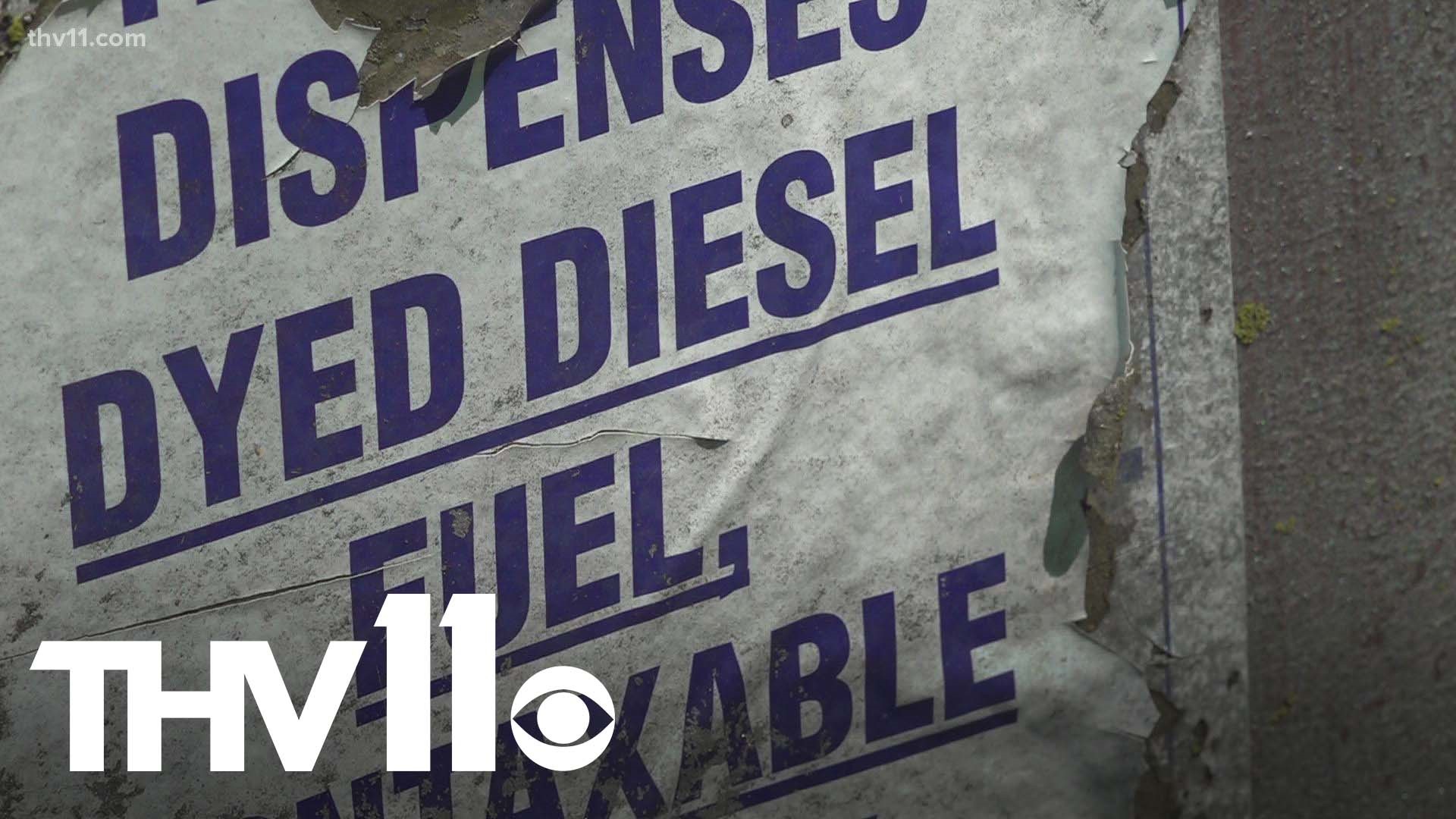LONOKE, Ark. — Inflation is causing trouble for countless businesses, whether they're a major corporation or locally owned.
Rex Barnhill co-owns a small farming operation in Lonoke, but the impacts of inflation are still big for him--specifically when it comes to diesel.
"Lots of griping going on, belly-aching. But they're like me, they're just gonna have to suck it up," Barnhill said.
With rising costs Barnhill is stuck between a rock and a hard place.
While he needs diesel for the machines that help him tend to the fields, he's not a big fan of the price that he's having to pay though.
"When that tank runs dry, I'm buying. It doesn't matter what the price is. Without it, we can't operate," he said.
Unfortunately for Barnhill and other farmers in Arkansas who rely on diesel, prices are still going up.
That's something that even state experts are noticing and keeping an eye on now.
"The national average price was over $5.60 a gallon I believe, so very high diesel prices," said John Anderson, head of the Agricultural Economics and Agribusiness Department at the University of Arkansas.
Like most of us, he keeps an eye on gas prices.
"It's going to change the way we operate. It's going to change our production plans in ways that reduce costs," Anderson said. "Probably by ultimately producing less, and that's going to result in higher prices."
What's worse, Anderson said diesel prices may continue to rise through the summer which results in higher prices for consumers.
"Everything that you see in the grocery store got there on the truck," he said. "So fuel prices are really embedded in everything."
Anderson said it's tough to watch, especially since there's not much they can do about it.
That's the same mentality back at Barnhill Orchards, where they're watching the prices but still doing what they have to do.
"If you don't want to pay the price, you just don't play the game," Barnhill said. "If we don't play the game, there's less people producing and there's going to be shortage of product."

